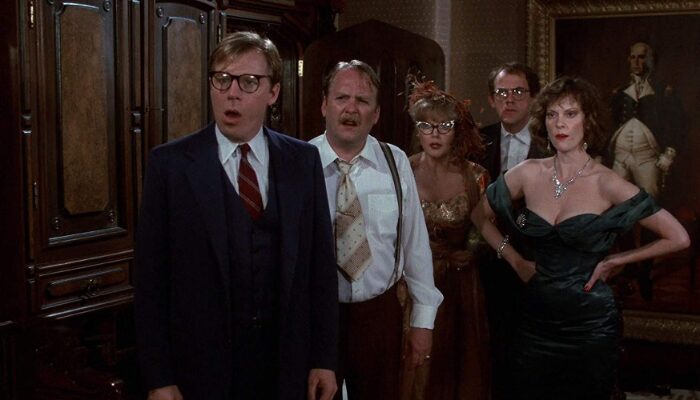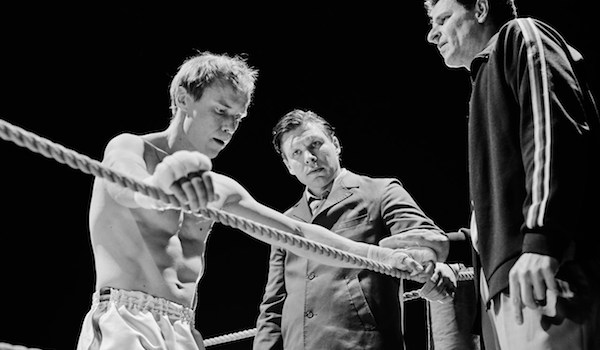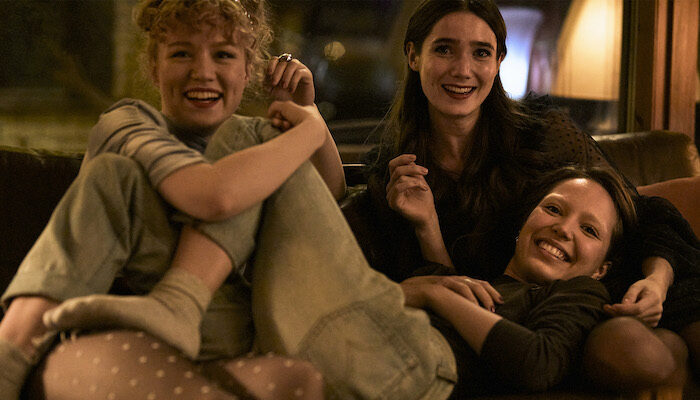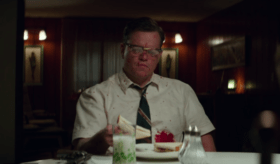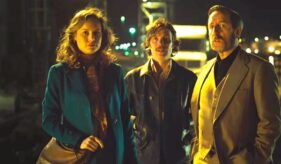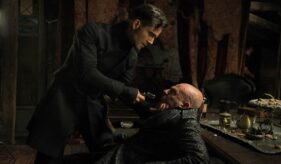Film Review: THE HAPPIEST DAY IN THE LIFE OF OLLI MÄKI: A Romance That Packs a Punch [TIFF 2016]
The Happiest Day in the Life of Olli Mäki Review
The Happiest Day in the Life of Olli Mäki / Hymyilevä Mies (2016) Film Review from the 41st Annual Toronto International Film Festival, a movie directed by Juho Kuosmanen, and starring Jarkko Lahti, Eero Milonoff, and Oona Airola.
In spite of a few pulled punches, The Happiest Day in the Life of Olli Mäki is a film that comes out swinging.
Juho Kuosmanen’s The Happiest Day in the Life of Olli Mäki (Hymyilevä Mies) is the best Finnish boxing period piece you’re going to watch this year. The film recounts the true story of Olli Mäki, an athlete who competed in the first-ever World Featherweight Title held in Finland. Finnish actor Jarkko Lahti portrays Mäki with a quiet sincerity. The film is a quaint period piece with the age-old question of how to choose between a simple life with your hometown sweetheart, and fame and success in you can find in the big city.
Kuosmanen is a director that you’re going to want to watch out for. The Happiest Day in the Life of Olli Mäki won the Un Certain Regard at Cannes, an award that’s gone to other young and upcoming talents, such as Dogtooth‘s Yorgos Lanthimos. Don’t be surprised when Kuosmanen takes home a few Academy Awards in the near future.
Like any good sports movie, The Happiest Day in the Life of Olli Mäki is not really about boxing. In its depiction and presentation, Olli’s actual match against his American competitor feels secondary to the prominent emotional themes and questions present in the film. As far as sports films go, it does all of the most important genre tropes present. Olli is presented with the impossible challenge of going up against an undefeated competitor. His coach, portrayed masterfully by Finnish actor Eero Milonoff, is seeking his own redemption through Olli’s potential victory. Olli’s ever hopeful girlfriend and supportive girlfriend, as portrayed by Oona Airola, is always dutifully waiting in the background of press conferences and cheering from the bleachers. The film even has a training montage.
What makes The Happiest Day in the Life of Olli Mäki a great film is how it manages to subvert these tropes so completely. Olli seems to be the only one who acknowledges that there’s decent chance he’s going to lose his match against his American competitor. His coach had a prolific and successful boxing career of his own, and without giving too much away, the redemption he’s seeking comes from far outside the ring. Even though his girlfriend is supportive of Olli’s career, she comes off as mostly neutral to Olli’s success as a professional athlete. The film’s training montage isn’t a fist-pumping triumph over Olli reaching his goals, but is a gritty depiction of the self-abuse boxers have to endure to meet their weight categories.
You don’t need to be intimately familiar with the history of boxing, or of professional sport in Finland, to enjoy this film. Honestly, it’s a better experience if you go into the theater completely blind about the history of this particular match and it’s outcome. Avid spoiler-seekers might be tempted to take a peek at the history books, but try not to look up the results of the match before you watch this film. Even if you do know what happened in the 1962 World Featherweight Title championship match held in Helsinki, it doesn’t diminish the quality or experience of the film. Depending on how much you know about Scandinavian film, and how many sports films you’ve watched in the past, the ending may or may not surprise you.
Kuosmanen shot the movie on black and white 16mm film, giving it a choppy home movie vibe. Occasionally, there are issues with under-exposure in the film, and the focus goes soft more often than it should at this professional level. However, most of the time, the stylistic choices of The Happiest Day in the Life of Olli Mäki contribute to the film’s tendency to feel like a series of memories. The editing jumps between scenes from the memories of the real life Olli Mäki: collapsing from heat exhaustion inside a sauna, spotting Raija standing in the back of a crowded press conference, running from a sudden rainstorm at a country wedding. This visual style grants the film an intimacy that comes with any good slice of life film.
The Happiest Day in the Life of Olli Mäki is a strong film, but it still has it’s own problems. One particular area that felt somewhat unresolved is Olli’s relationship with his coach, Elis Ask. Throughout the film, the film repeatedly reminds the audience that Ask has purposefully booked Olli in a match in a competition division one step below his his normal fighting weight. This situation creates the film’s main conflict of Olli struggling to get his weight down below 57 Kilograms. At first, the film heavily implies that Ask has done this so that Olli won’t win a title in the same weight division as his coach did when Ask was a boxer himself. The film never fully addresses this idea directly, and the audience is left without much in the way of resolution for this issue.
Another problem is that the film ends somewhat passively. The main conflict of Olli struggling to meet his weight goals is compelling and does successfully drive the narrative forward, that’s really the only overt conflict in this film. One place where this becomes a real issue is in Olli’s relationship with his girlfriend, Raija. In the film, Raija’s character is somewhat flat. We don’t get any real idea of who she is as a person.
Raija being underdeveloped as a character might not seem that important, considering that The Happiest Day in the Life of Olli Mäki is mainly about Olli and about his boxing career. However, the film’s central theme relies on the idea that Raija is the living, breathing, representation of another pathway in life that Olli can choose. What ultimately saves the film, and makes Olli and Raija’s relationship believable, is the stunningly genuine on-screen chemistry between Jarkko Lahti and Oona Airola.
The Happiest Day in the Life of Olli Mäki conveys its message successfully by the end of the film. In spite of its niche topic and setting, he film feels very accessible, even to audiences without any knowledge or interest in Finnish sports history. It’s worth mentioning that there’s also a completely adorable cameo from the real Olli and Raija Mäki towards the end of the film. Be sure to stick around for the credits to find out where they appear.
There’s a genuine sweetness to this film without the it becoming overly saccharine. It’s not exactly family-friendly if you’re opposed to prolonged male nudity, but it might be a good date night compromise for a couple who like very different films and want to see something light-hearted. If you’re a boxing fan looking for a sports movie that isn’t a Rocky ripoff, if you want to step into life in 1960’s Scandinavia for 92 minutes, or if you just want to see an honest film from a great director who deserves a bigger spotlight, The Happiest Day in the Life of Olli Mäki might be for you.
Rating: 8/10
Leave your thoughts on this The Happiest Day in the Life of Olli Mäki review and this film below in the comments section. Readers seeking more film reviews can visit our Movie Review Page, our Movie Review Facebook Page, and our Movie Review Google+ Page. Want up-to-the-minute notifications? FilmBook staff members publish articles by Email, Twitter, Tumblr, Google+, and Facebook.
Related Articles
FilmBook's Newsletter
Subscribe to FilmBook’s Daily Newsletter for the latest news!






